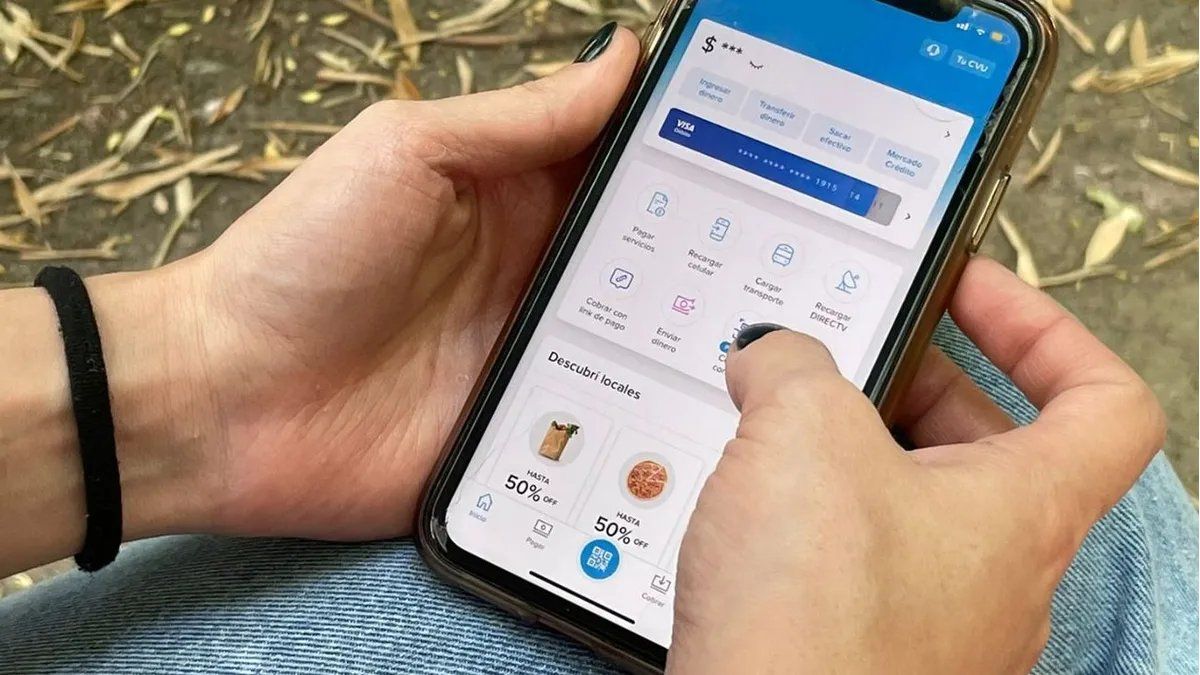The change in regulations by the Central Bank (BCRA) for transfers from banks to virtual wallets generated a new instance of conflict with Payment Marketleadered by Marcos Galperin. In the midst of a growth of more than 60% in this means of payment, the question falls on the security measures of these applications and how it affects traditional financial entities.
The modification established by the entity led by Miguel Pesce It affects the system called DEBIN (immediate debit). The resource enables virtual wallet users to deposit money from their bank accounts automatically, without further requirements than their own request.
Through a statement shared in mid-September, the BCRA determined that, as of December 1, the system will be replaced by the “Immediate Pull Transfers”. The BCRA’s own glossary defines it as “requests or requests for funds that allow, by debiting the account of the client receiving the request and prior authorization or consent, the immediate crediting of funds to the account of the requesting client.” According to the Central, the change is maintained with the objective of “preventing fraud”, since the new mechanics will allow the virtual wallet to request, one time, the approval of the withdrawal of funds through the CBU, the key and the token.
Ariel Setton An economist specializing in means of payment and financial inclusion, he assures that in reality “the way of entering money into the applications is being rethought, not only for Mercado Pago, but any other fintech, or even between banks.”
For the specialist, the DEBIN problem, the system that was implemented in 2017, is that it facilitates the entry of funds, “at the cost of not being able to reverse or limit your application as a user.” Therefore, in the face of cell phone theft, “what they do is fund the virtual wallets with all the accounts registered in the system and as a user you can do absolutely nothing to interrupt it.” Instead, the implementation of pull transfers seeks to give more maneuverability to users, “who could disable access to their money by entering bank accounts (on a PC for example).”
In any case, for Setton, there is a counterpart related to the initial operation. “You have to enter the username and bank password, not the CBU, and that can cause some difficulty for users.”
However, Mercado Pago does not have the same opinion. In a strong statement released through their social networks, they determined that the measure “is a new direct attack on financial inclusion, which will negatively affect the experience of millions of users and will induce the use of cash.” Marcos Galperín’s company understands that four million users will be affected and that in the tests of the Pull Transfer system, “9 out of 10 people are unable to deposit money into their accounts as they are forced to go through multiple steps in their home banking and even, with some banks, to go to an ATM.”
From the BCRA they claim to have tested the new modality and verify its operation. “It’s strange because they were always leading the technical issues and now they say that in two months they cannot solve a problem,” they question from the Government. Furthermore, they insist not only that the changes are for all wallets, but that the DEBINs “were for payments, not for transfers or funding, which also generates problems for scammed users,” since there is a substantial difference in treatment between the banks and virtual wallets when a user is scammed.
In that sense, from the company We Live Security, They warn that since the implementation of DEBIN, scams have been detected that caused large sums of money to be lost. “Criminals trick users into accepting a debit, making them believe they are accepting a transfer. Deception occurs when the victim needs to collect a sum of money (for a sale of services or products, for example).”
In other cases, according to the company, the victim, who must make a payment to a third party, is contacted by scammers impersonating that person and they deceive them by sending them a DEBIN order, which will be credited to the scammer’s account in place of the legitimate creditor. According to economist Martín Burgos, if transfers can be made from the bank or wallet balance, the operational risks for the user “are relevant”, since not all fintechs “have protocols for reversing operations reported as illicit.” Non-bank electronic money under insufficient regulation “offers the company to multiply its profits by offering different services to the customer.”
Finally, Mercado Pago emphasized that its digital account maintains an active return on money at a rate of 94.6% annually, in reference to the competition it generates for traditional bank accounts and their investment instruments. The truth is that, according to the financial services company MONI, virtual wallets are chosen as a means of payment 61.9% more than in June of last year. It represents a significant increase compared to June 2020, when 48.4% of respondents opted for wallets as a payment method. In addition, according to BCRA records, there are already 48 interoperable digital wallets from different fintechs and digital payments represent more than 50% of financial transactions.
Source: Ambito




